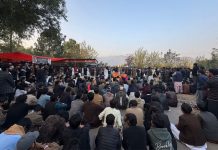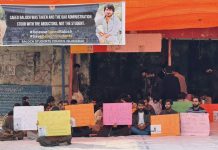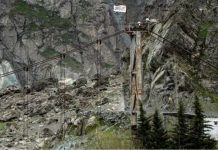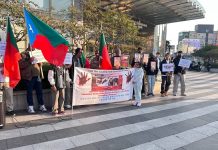In a heart-wrenching incident, Najma d/o Dilsard, a schoolteacher from Balochistan’s Awaran district, tragically took her own life after enduring relentless blackmail by facilitators of Pakistani intelligence agencies. This distressing event sheds light on the ongoing struggles faced by the Baloch people and their resistance against the presence of Pakistani security forces in the region they call home.
According to local sources, Najma had been targeted by Noor Bakhsh s/o Abdul Haq, a policeman allegedly linked to Pakistan’s intelligence agencies. Bakhsh and his associates relentlessly blackmailed Najma, coercing her to work for the Pakistani forces. The accused repeatedly contacted her through various phone numbers, threatening harm to her and her family if she refused to comply. In an act of defiance, Najma chose to protect her honor and integrity, ultimately deciding to end her life rather than succumb to the pressure of working for the Pakistani forces.
Sadly, Najma’s case is not an isolated incident. Numerous similar cases have emerged in different regions of Balochistan, where individuals have been driven to suicide under the coercive tactics of the security forces. In Kolwah, a local madrassah chair, Molvi Nadil Mirwani, resorted to blackmailing women over the phone. Likewise, prominent cleric Muhammad Khan from Awaran was also embroiled in similar allegations.
The continuous abuses of power by the Pakistani forces should be a cause for concern and a wake-up call for human rights groups. Despite the “enforced disappearance” of Ajab Yalanzai and the arrest of his uncle Shafqat Yalanzai on charges of murdering retired Justice Muskan Zahi, the security forces continue to conduct raids on Ajab Yalanzai’s house. These acts of intimidation, along with physical and mental torture inflicted upon family members, have led to devastating consequences. Recently, the wife of young Latifullah Yalanzai tragically took her own life, and her grieving husband followed suit, unable to bear the pain any longer.
The case of Chakar Majeed from the Sarikan area of Kech highlights the long-lasting impact of pressure exerted by the Pakistani army. Chakar, who had previously been detained and subjected to severe mental and physical torture for ten months, chose to end his own life rather than continue to face coercion from the security forces. Even after his release, the forces persisted in summoning him to the camp, pressuring him to work against Baloch activists. Tragically, Chakar preferred suicide over collaborating with the forces that had inflicted immense suffering upon him.
These distressing incidents serve as a stark reminder of the repressive environment in which the people of Balochistan find themselves. The bravery and determination of individuals like Najma, who choose to defend their dignity even in the face of extreme adversity, highlight the urgent need for human rights groups and activists take notice of the ongoing human rights violations in Balochistan.





























